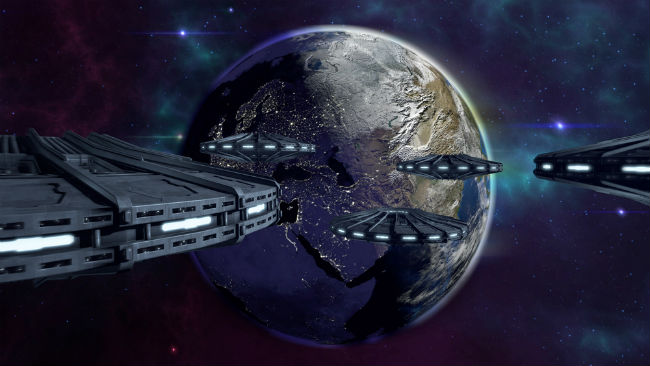
Is humanity alone in the universe? We’ve spent centuries arguing over this very question, but there’s been deafening silence from the universe around us, barring the occasional UFO sighting by NFL players. So, are there aliens? And will we ever meet them?
What Is The Fermi Paradox?
The Fermi paradox is often discussed when aliens come up, and it’s a shorthand term for a fairly complex problem that has two halves. The first half is that the odds there are other civilizations and life forms are shockingly high, at least in theory; Frank Drake, an astrophysicist, came up with an equation that’s a probability exercise. Drake’s fundamental argument is that the universe is vast and there are enough planets and suns that there’s at least one advanced alien civilization, or at least the remains of one. Not everyone is a fan of this argument, but Drake has a point: Aliens more or less, by the laws of mathematics, have to be out there, and that NASA just keeps finding Earth-like planets lately has been reinforcing that.
But the other half is: Where the heck are these aliens? We haven’t gotten anything from them, not a probe sent into our universe, not a ship landing at Area 51, not even bursts of their terrible pop music. Enrico Fermi, back in the ’50s, burst out with “Where are they?” during a conversation about aliens, which is why the paradox is named for him. And it’s a valid question that has more than a few answers.
There Likely Are Aliens, But They’re Just Like Us
Consider, for a moment, the history of Earth. Our planet is 4.5 billion years old, at our best scientific estimate, and we have been on it, by that scale, for little more than an eye blink. The predecessors of the human race likely began to emerge two to three million years ago, and it wasn’t until a few thousand years ago that we figured out that hunting and gathering was an awful way to live, and started trying to farm. We’ve been working out this “civilization” thing ever since, but while it seems like an awful long time to us, we’ve been around for far less than 1% of the entire history of the planet.
Most alien species are likely in the same boat, if not paddling further behind. Keep in mind that if a giant rock hadn’t come along and wiped out the dinosaurs, we’d probably still be walking on our knuckles and covered in fur. The amount of things that have to go right for a planet to not only support life, but support life that can build complex civilizations, is enormous. There’s an excellent chance that, right now, the alien civilization we’re looking for has just discovered the pointy stick. So even if they are advanced, they probably aren’t advanced enough to defeat the vastness of space.

The Universe Is Working Against Us
The closest star to our sun is Alpha Centauri. If you decided to pay a visit, you’d be traveling 30 trillion miles, give or take. And that’s to stay in one galaxy, visiting a nearby star system. To jump between galaxies? Well, there’s a reason we use “light years” to measure this kind of thing. You start to run out of -illions.
Also, if we’re making a probability argument, we have to allow that the distribution of civilizations across the galaxy must be random. Some galaxies might have dozens of civilizations, but humanity might be the only civilization in the entire Milky Way for all we know. And all of this only works if the assumptions that we’ve made are correct and those civilizations are still around. Another argument, the Great Filter, theorizes that either evolving to become intelligent is a complex process that we don’t fully grasp…or that it’s simple to do, and that complex life simply tends towards self-destruction. Considering how many nuclear weapons we’ve built, that’s a statement that has to give us pause.
In the end, we only have theories to answer these questions, not any hard facts. Unless aliens show up tomorrow and lay out what took them so long, the only way to get answers is to go into space and look for them. But we shouldn’t be surprised if, after centuries of searching, we find an alien race and they ask us just what the heck took so long, anyway.






